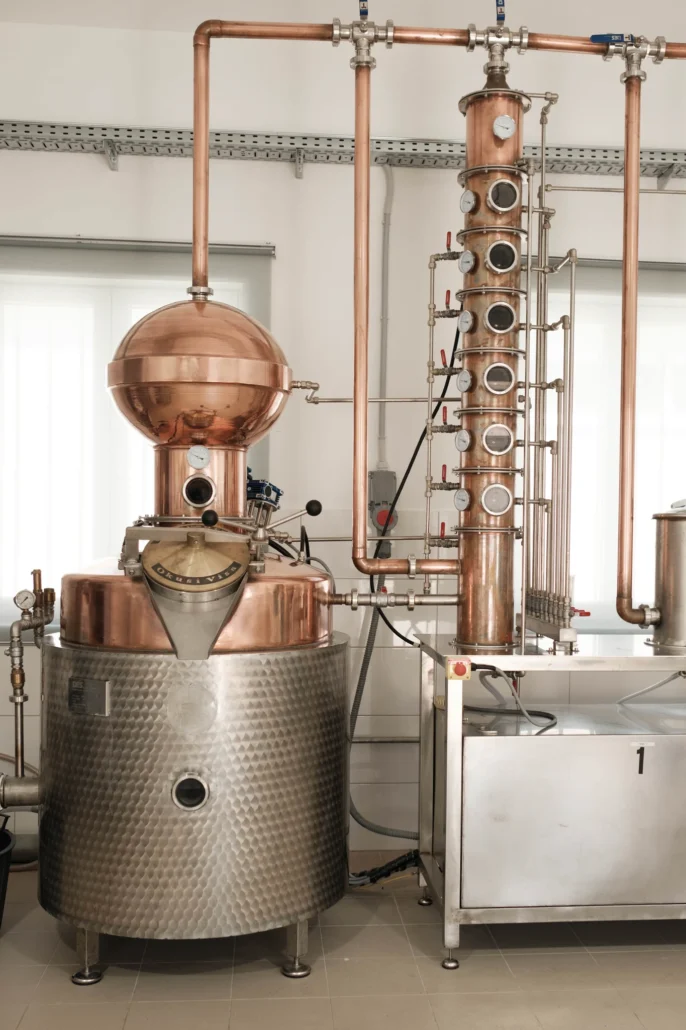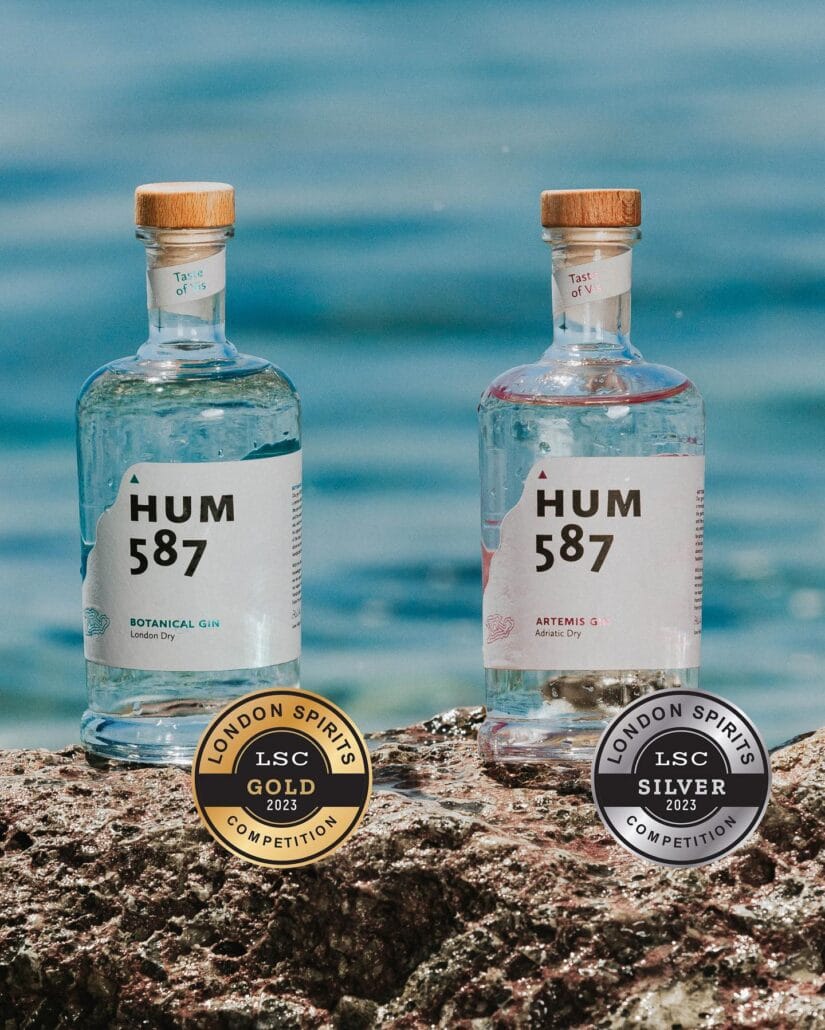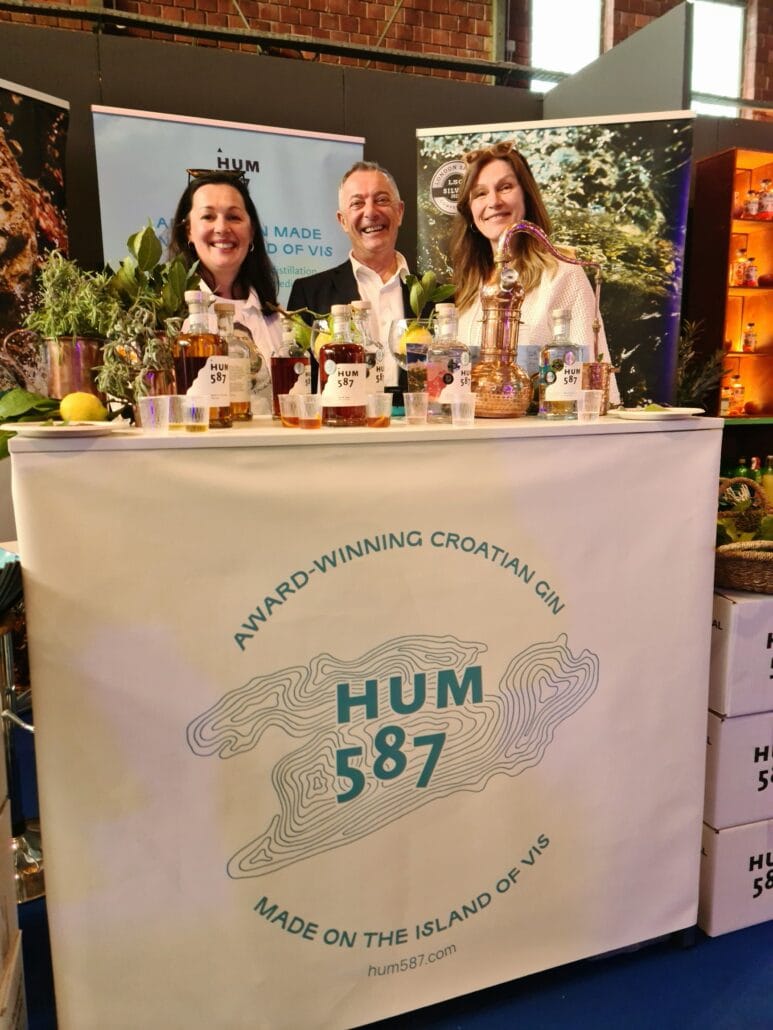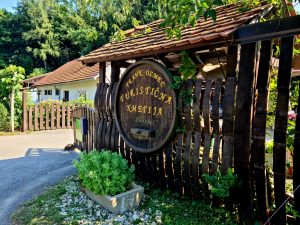We’ve not been to Vis.
Not yet.
We’re going, though.
Sometime.
We want to visit the farthest inhabited island off the Croatian coast with a spotted pedigree.
Before the end of World War I, the island was held by the Liburnians, the Republic of Venice, the Napoleonic Kingdom of Italy, and the Austrian Empire. During the 19th century, the sea to the north of Vis was the site of two naval battles. In 1920, the island was ceded to the Kingdom of Yugoslavia as part of the Treaty of Rapallo. During World War II, the island was the headquarters of the Yugoslav Partisan movement. After the war, Vis was used as a naval base for the Yugoslav People’s Army until 1989. The island’s main industries are viticulture, fishing, fish processing, and tourism.
I’d have gone because of the Partisan connection – something that has always fascinated me – even if I’d not stumbled upon HUM 587 at the Weekend Food Festival in Rovinj earlier this year.
It was the head honcho, Darko Ivančević, who pointed us in their direction, ‘their’ being a British/Norwegian couple who had bought property on Vis and were living the dream, producing some seriously good gin. ‘Be sure to stop by their stand’, he said. ‘You won’t be disappointed.’
We did.
And we weren’t.
Disappointed, that is.
I was a gin drinker way before it became a boutique thing. Many years ago, while having dinner in Castle Leslie, my friends were all on the red wine. I rarely touch the stuff. Instead, I opted for a gin accompaniment with each course. They had 80+ to choose from. I was in heaven.
But back to Vis.
Former Navy turned commercial deep-sea diver, Gary Ward, was sitting with a mate on Vis one day marvelling at how good he had it. The smells of the island’s botanicals perfumed the air. It was idyllic. His mate jokingly suggested they start making their own gin. The idea took root and a while later, when Gary suggested it in earnest, his mate had second thoughts. Undeterred, Gary and his wife Hilde, ran with the idea. They got their 300-litre copper still from the iconic stillmakers, DES, in Subotica, Serbia, spent a year working through the bureaucracy, and finally got their licence to distil. The Okusi Visa distillery was born; the gins are named after the island’s tallest mountain, Mount Hum, which stands 587 m above sea level.

Hilde Hellebø Ward, the Norwegian half of the duo behind HUM 587, brings her flair for interior design from Bergen to the island. Here, as the resident apothecarist, she curates the island’s botanicals, trying 150 recipes and combinations before hitting on a winning composition.
And yes, they’ve won.
Their first gins were served on the island of Vis in 2022. A year later, HUM 587 Botanical Gin won gold and HUM 587 Artemis Gin won silver at the London Spirit Competition 2023. Last year, in 2024, at the World Gin Awards in San Francisco, HUM 587 Botanical Gin won another gold and was crowned Croatia’s Best London Dry Gin, earning a prestigious gold medal. And HUM 587 Artemis Gin won a silver medal in the contemporary section. A key ingredient is the wild sage that only grows in Vis. But the other strong, oily botanicals pull their weight, too.

Someone once told me that gold medals in wine competitions were political – better to go for the silver and bronze. I’ve no idea how true that is, so I did the taste test myself. I can confirm that the judges got it right. The botanical gin is quite special. As is their sloe gin, which regularly sells out. It’s a favourite of wedding parties on the island, served in spritz with sparkling wine. No prizes for guessing what my tipple on the terrace will be this summer.
While I was very taken with the gins, I was even more enthused by the couple’s passion for their product and the island. Their love for Vis is palpable. Their Croatian is far from fluent, but they manage. They’ve been welcomed into the community and made feel part of island life. And they love it. They love everything about the island and their distillery
What an incredible and inspirational reinvention.
Think about it. Vis didn’t open up to foreign visitors until 1991. Now, over 30 years later, HUM 587 from the Okusi Visa distillery has become a global ambassador for this piece of Croatian paradise. Their gins are distilled at a slow pace, about 3500 bottles a year, and sold locally. And while their network is growing, they have no desire to become too commercial. They’re an artisan distillery that recognises the beauty of small.

Share this:
- Click to share on X (Opens in new window) X
- Click to share on Facebook (Opens in new window) Facebook
- Click to share on Pinterest (Opens in new window) Pinterest
- Click to share on LinkedIn (Opens in new window) LinkedIn
- Click to share on Reddit (Opens in new window) Reddit
- Click to share on WhatsApp (Opens in new window) WhatsApp
- Click to share on Pocket (Opens in new window) Pocket
- Click to share on Telegram (Opens in new window) Telegram
- Click to email a link to a friend (Opens in new window) Email






